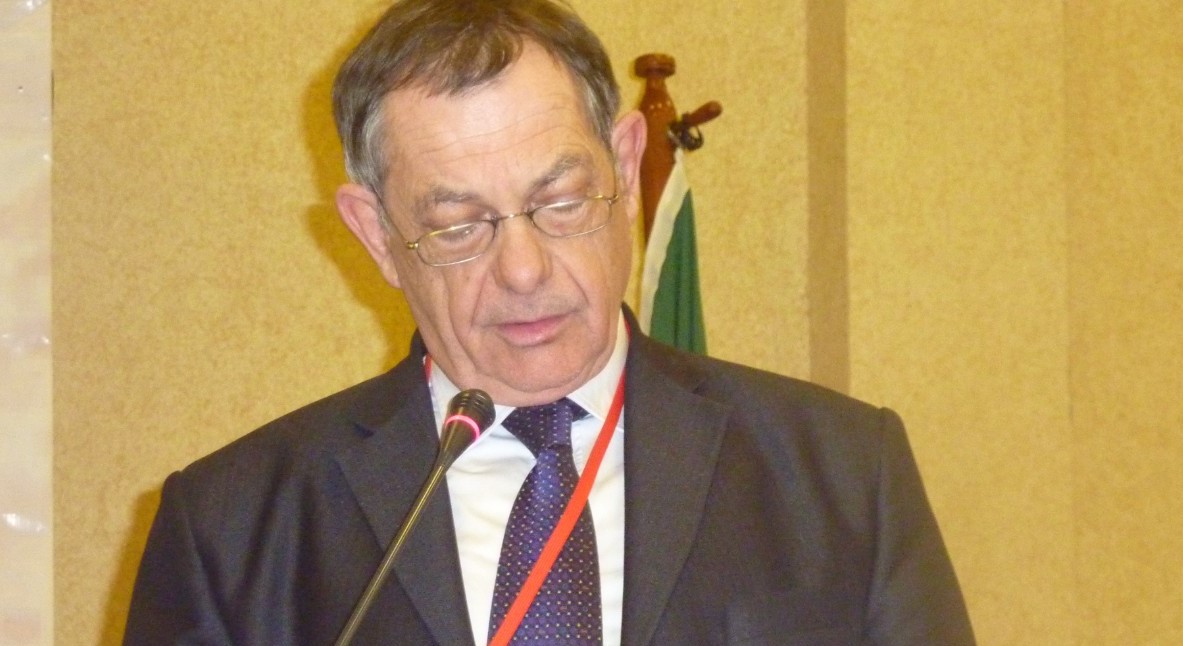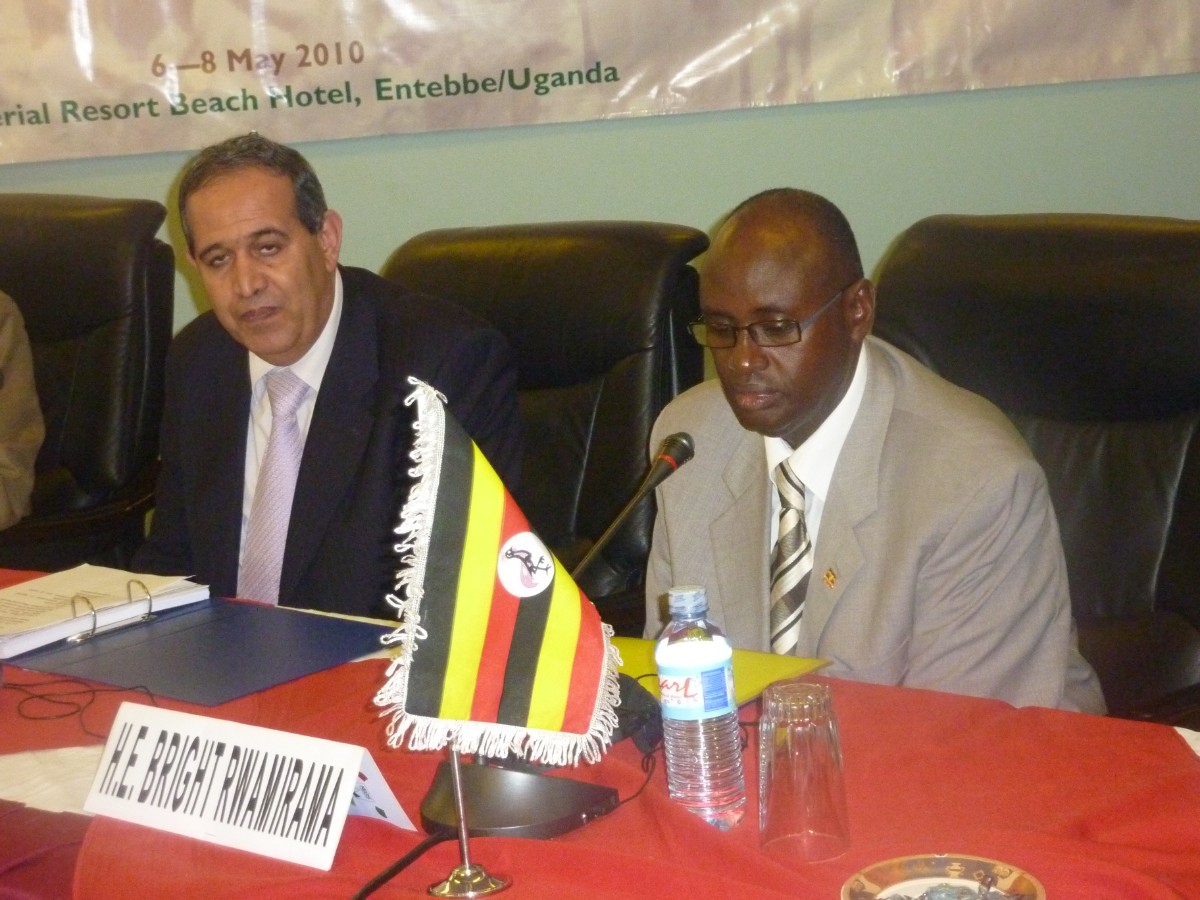• On Investment in the Livestock sector
Concerned about the low level of public and private investments in the Animal Resources sector and the low compliance rate in the implementation of the Maputo Decision by Member States on increasing national budget allocations in Agriculture including the Animal Resources sector and other decisions from conferences of Ministers;
Recognizing that the current policy and institutional environment in the Animal Resources sector is not conducive to attract private investment;
Recognizing the need for reliable data, tools and mechanisms to develop quality investment plans;
Recognising that the structural adjustment programs led to weakened capacity of livestock support services;
Urge Member States to implement the Maputo Decision on investing at least 10% of national budget in Agriculture of which 30% should be allocated to livestock, and AU-IBAR and the Regional Economic Communities(RECs) to monitor the implementation;
Urge donors to harmonise their support to the Animal Resources Sector;
Urge AU-IBAR to continue working closely with the NEPAD Planning and Coordination Agency (NPCA) and to assist countries and RECs in developing their CAADP-Compact and investment plans for the Animal Resources sector under the Comprehensive African Agricultural Development Programme (CAADP);
Urge Member States to enhance capacity for timely collection, analysis and sharing of quality data to guide policy, strategy and investment programs;
Urge Member States with the support of AU-IBAR to review what should be delivered by the public sector and which services should be privatised;
Recommend That African Union Commission (AUC) organizes a Livestock Summit to engage the AU Heads of State and Governments in decisions on Animal Resources sector policies and investments.
• On AU-IBAR strategic plan
Recognizing that the AU-IBAR strategic plan 2010-2014 is aligned to the priorities of Animal Resources development in all Member States and the CAADP which is the continental agenda set by Heads of State for the advancement of agricultural development on the Continent;
Endorse the AU-IBAR Strategic Plan 2010-2014;
Urge the donor community to support AU-IBAR to effectively implement its Strategic Plan 2010-2014;
Concerned about the inadequate AU-IBAR human and financial resources to effectively deliver on its mandate;
Urge AUC to strengthen and sustain AU-IBAR’s human capital to ensure a critical mass of expertise for execution of its mandate;
Recommend that AU-IBAR embarks on the formulation of continental programs to achieve the objectives of its six (6) strategic programs;
Recommend that AUC supports AU-IBAR to institutionalize annual meetings of directors of animal health and animal production to discuss and exchange information on Animal Resources issues and to consult and coordinate common positions;
• On access to market
Concerned about the position of Africa as a net importer of animal products while opportunities for intra Africa trade are not fully exploited with an estimated outflow of on average of 4 b USD per year;
Concerned about the poor competitiveness of African producers in domestic, regional and global markets;
Concerned about the constraints for intra and inter regional trade in Africa, caused by poor infrastructure, legislative barriers, persistence of non-tariff barriers including sanitary regulations, inadequate market intelligence and limited involvement of stakeholders along the value chain;
Concerned about the inadequate participation of African Member States in international Standard Setting Organizations and the low level of compliance with international standards by Member States
Recognizing the role of AU-IBAR in strengthening the participation of Member States in international Standard Setting Organizations and WTO-SPS committee, in particular the coordination of common positions on Sanitary and Phytosanitary Standards;
Urge AUC, and the RECs to sustain and strengthen the mechanism initiated by AU-IBAR aiming at supporting and coordinating the participation of Member States in Standard Setting;
Urge Member States to take measures including investment in infrastructure, value addition and supporting economies of scale by strengthening smallholder farmer organisations to enhance Animal Resources sector competitiveness;
Urge RECs and AU-IBAR to strengthen animal resources marketing information systems;
Urge RECs to promote inter and intra regional trade and task AUC to promote the process
Urge AU-IBAR to assess the competitivity of livestock sector and proposed alternatives for improving intra African trade and improve competitivity
Recommend that Member States create/strengthen national and regional coordination mechanisms to harmonize SPS related activities;
Recommend AU-IBAR to establish a dedicated desk in supporting intra African trade in animal products through information sharing and on demand facilitation of contacts between commercial partners
• On rinderpest eradication and control of Transboundary Animal Diseases (TADs)
Recognizing the benefit from the eradication of rinderpest and the need for progressive control of other TADs;
Recognising the need for a regional approach for effective and sustained control of TADs and zoonosis;
Concerned about the risk of rinderpest virus escape from the laboratories and the possible re-emergence of the disease ;
Recognising the support provided by the AUC to AU-PANVAC to establish a level 3 Biosecurity laboratory (BSL3);
Concerned about the inadequate AU-PANVAC human and financial resources to effectively deliver on its mandate;
Recognising the role of AU-PATTEC in the control of tsetse and trypanosomiasis and the success in the control and eradication in Botswana and Namibia and the ongoing initiatives in other infected countries and the need for coordination of actions among affected countries;
Concerned about the lack of awareness on AU-PATTEC activities in some Member states and the absence of the program in some tsetse infested countries ;
Encourage Member States to speed up the process of rinderpest virus sequestration, by completing the FAO/OIE questionnaire regarding the inventory of the virus (samples, vaccines), without any further delay;
Urge Member States to maintain and regularly update their rinderpest contingency plans and establish syndromic surveillance systems for trade-sensitive TADs, especially in high risk areas and AU-IBAR to mobilise resources to support this endeavour;
Urge Member states to improve the quality and timeliness of disease reporting to AU-IBAR including emergency reporting and for AU-IBAR (ARIS) and FAO (TADInfo) to ensure inter-operability between their respective information systems and connecting them to the OIE WAHIS, and FAO GLEWS/EMPRES global systems
Urge AUC to strengthen AU-PANVAC human capital to ensure a critical mass of expertise for execution of its mandate;
Urge all tsetse and trypanosomiasis affected countries to harmonize and intensify actions and inputs for the control and eradication of tsetse and trypanosomiasis and AU-PATTEC to establish coordination offices at the regional level;
Recommend RECs to establish well-structured livestock governance systems to achieve effective coordination of TADs and zoonosis at regional level;
Recommend member States to destroy all rinderpest virus strains held in Africa and to hand over what is deemed necessary to AU-PANVAC for safe storage;
Recommend that AU-IBAR mobilises resources for the progressive control of PPR and other priority TADs;
Recommend that AUC establishes a trust fund for the progressive control and eradication of TADs and trade sensitive diseases.
• On Pastoral production systems and climate change
Concerned about increasing incidence of natural resources based conflicts in different farming systems being exacerbated by climate change and the movement of animals within and across national borders;
Recognizing the need for Member States to strengthen the capacity of pastoral communities to adapt to climate variability;
Urge AU-IBAR and RECs in partnership with other relevant institutions develop and facilitate implementation of early warning systems for supporting disease control, stocking/destocking/animal movement decisions and crop management practices of agro-pastoralists;
Urge Member States to support research and uptake of packages on technologies that will strengthen adaptation and mitigation to climate change and implement the index based livestock insurance;
Urge AUC to finalize the Pastoral Policy Framework as soon as possible to facilitate its implementation by Member States and RECs.
• On the conference of Ministers Responsible for Animal Resources
Recognizing the importance of the joint periodic review of the status of Animal Resources sector in Africa by Experts and Ministers responsible for Animal Resources
Commend AU-IBAR for the successful organisation of the 8th conference held in Entebbe , Uganda on 13th and 14th May 2010
Concerned about the constraints that prevent the regular convening of this conference
Recommend that the AUC institutionalise the Bi annual conference of Ministers responsible for animal resources in Africa (COMAR)
Propose that the next meeting be held in 2012 in Cote d’Ivoire.
Entebbe, May 14th, 2010
All pictures (c) B.J. Mtei (oie) 2010


